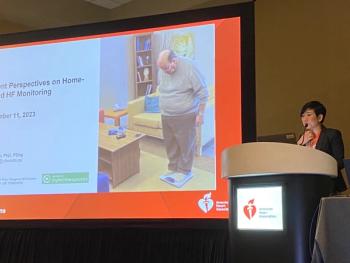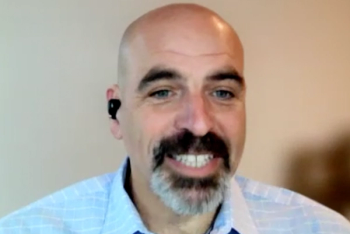
Why Chronic Care Management Isn’t Gaining Traction: Health Execs Identify 3 Barriers
Healthcare leaders reveal their top challenges to managing chronic care.
Managing patients with multiple chronic conditions-who, according to the RAND Corp., account for about
The only problem? The health system was purpose-built for episodic care rather than the ongoing, community-based care this population typically needs.
To learn more about the challenges of managing chronic care, Sage Growth Partners conducted
What we found is a large gap between need and ability. While virtually all (98%) respondents believe chronic care management is very important, only about half (53%) say they’re doing it very well.
Top three barriers
What’s getting in the way? Respondents say their main barrier is insufficient human resources (61%), followed by inadequate reimbursement (52%), and capital constraints (35%).
It’s not surprising that managing the care of those with chronic conditions is difficult. Nor is it surprising that-despite the emergence of thousands of new technology solutions-respondents think people are essential to managing care:
- 71% of respondents say that an even mix of people and technology is needed to drive care management success, while 19% think staffing is more important than technology.
- Over two-thirds (69%) of respondents believe a trusted relationship with a nurse or other clinicians is central to managing chronic conditions, and 76% say these relationships are extremely likely to improve patient loyalty.
Hospital executives are sober about chronic care management capabilities
Overall, the industry is sober about its ability to manage chronic care and readmissions, and hospital executives are less sanguine about their abilities than are leaders of physician practices:
- Only 4% of hospital leaders say they manage care “extremely well,” compared with 29% of physician leaders.
- Only 24% of hospital leaders rate their effectiveness at preventing readmissions as very/extremely good, compared with over half (56%) of physician group leaders.
Related:
Why is there such a big gap? The survey findings reveal that only 20% of hospital executives believe office-based care is most important, compared with 75% of those running physician practices. That indicates that physician leaders view office-based care as key to managing chronic conditions, while hospital executives appear to place a greater value on home-based care. Or, perhaps, physicians feel more in control of care delivered outside the hospital than do hospital leaders.
Where both groups agree: telephonic nurse outreach is the second most important type of care.
Making chronic care management work
The CMS Chronic Care Management (CCM) program has been available since 2015, when CMS established new reimbursement codes to cover the cost of managing chronic care remotely. While this was a step in the right direction, it appears that only a small percentage of Medicare patients are actually receiving care under these codes.
The survey findings indicate that CCM reimbursement isn’t sufficient to cover the costs of delivering care in this program. Many providers struggle to enroll enough patients in this program to cover their staffing and technology time and costs. And even a number of chronic care management companies have folded because they couldn’t make the model work.
Creating a pool of experienced nurses that can work closely with physicians’ staff to give the higher acuity patients the extra support they need-to catch problems early so they don’t become crises-is key. It’s also important to have technology that can readily integrate with the EHR so that physicians don’t waste precious time getting the program up and running.
When programs are implemented effectively,
Another survey conducted last year of patients enrolled in Signallamp Health’s CCM programs confirms that this care helps them feel more in control of their health and more loyal to their healthcare providers.
The challenges of delivering chronic care are multiple and significant. But for those who can operationalize this care model with the right combination of people and technology to make a program work given existing reimbursements, the rewards can be great.
Drew Kearney, cofounder and CEO,
Newsletter
Get the latest industry news, event updates, and more from Managed healthcare Executive.























